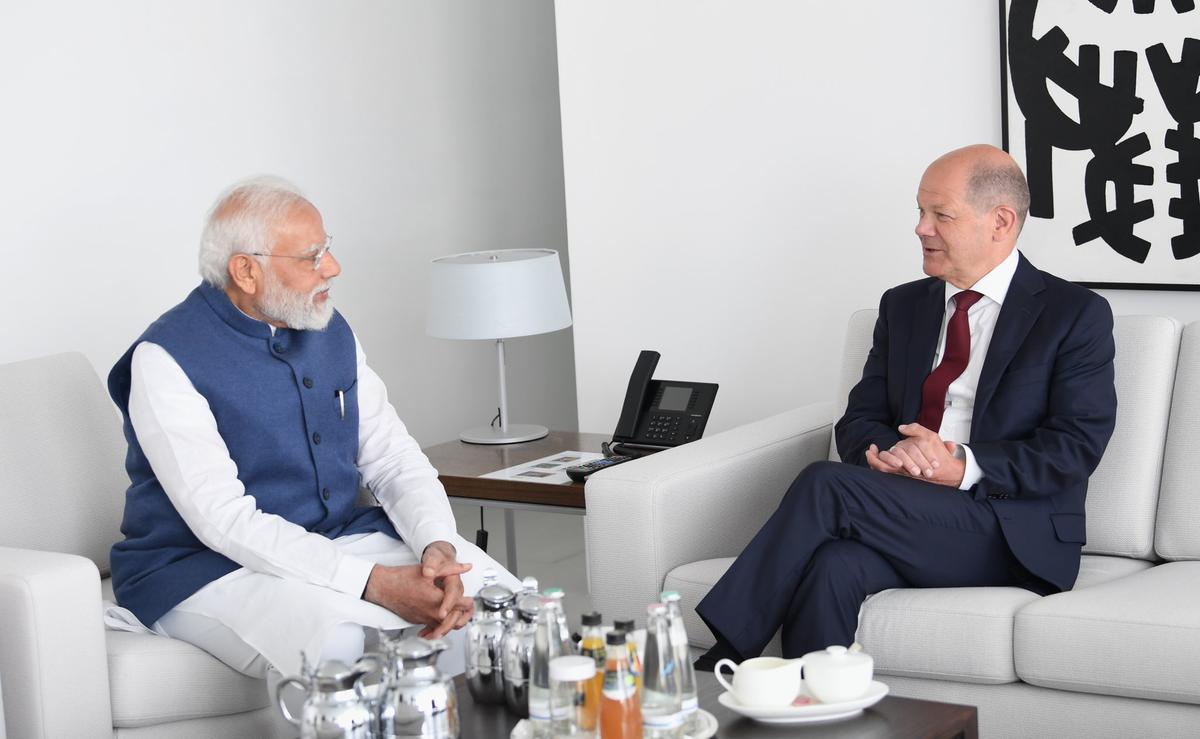Live Classes

Whether the Prime Minsiter of India’s visit to Germany changed the perception about India’s stand on Ukraine assumes critical importance.
Prime Minister Narendra Modi’s visit to Germany on May 2 came at a critical time, shaped by the ongoing Ukraine war. In recent times, New Delhi has been at its assertive best. Even as the United States and the European nations have applied sanctions on Moscow and provided military aid to Ukraine, New Delhi has refused to play ball. It has not only avoided condemning Moscow by abstaining in the United Nations (UN) on critical votes on the war but has also continued to engage with Moscow to increase its import of cheap crude. Its long-standing and traditional defence links with Russia remain intact. Such moves have raised eyebrows and attracted some amount of criticism from the West. New Delhi, however, insists that its position on the war is non-partisan and should be appreciated by its allies and friends.
For a nuanced stance
However, assertive media and conference statements by India’s External Affairs Minister notwithstanding, there is growing recognition in India’s strategic circles that New Delhi has to bring in more nuance to its approach with Europe. Given India’s stature, being completely isolated by the West is certainly not a best-case scenario. However, with an assertive China on the world stage and in particular, at the border with India, New Delhi needs to manage a delicate balancing act while asserting its right to pursue its national interests and strategic autonomy in foreign policy. Mr. Modi’s three-nation Europe tour (May 2-4) needs to be contextualised with these factors in the backdrop. There is a clear, albeit delayed, move toward a unified response vis-à-vis Russia in Europe. Its significant reliance on Russian gas and crude notwithstanding, condemnation of Moscow’s moves in Ukraine is near unanimous in Europe. Not surprisingly, India’s abstention in the UN votes and its continuation of its relationship with Russia have raised quite a few hackles in Germany. In private as well as public discussions, India’s role as a major power and largest democracy are being brought to the forefront and there is a growing expectation that India needs to make a shift from its position on Russia and join hands with the European countries and the U.S. in protecting democracy in need. Amidst these expectations and pressure tactics, whether the Prime Minister’s visit to Germany helped change the perception and bridge the gap that has been growing, assumes critical importance.
Download pdf to Read More